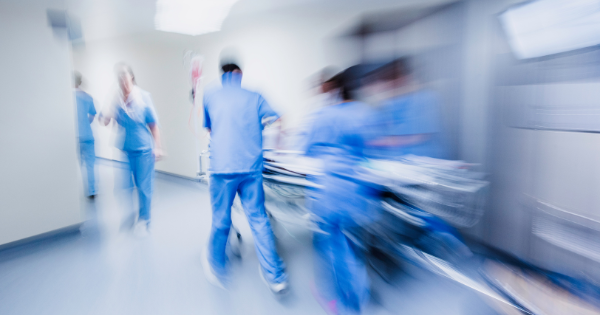Why do we as clinicians so eagerly volunteer “helping family members and friends or associates” at the peril of injury to them or of having litigation brought against us personally? This may seem like a silly opening statement but it is something, regrettably, that I have done in the past and many of us unconsciously engage in often because we are “nice people.” The act which I am referring to is an informal consultation without a patient chart, also known as a “curbside consultation.”
This risky gesture is not exclusive to physicians, but is practiced by all licensed medical professionals, including PAs and NPs. It is also a practice that is likely not insured by your malpractice company because you are practicing medicine without a chart, without prior knowledge of the patient’s medical history, independent of your office or hospital practice and, many times, out of your scope of practice. This is just a short list of the potential problems.
What are the risks associated with this practice?
Risks of this behavior increase significantly if the “friend, colleague or patient” identifies you as the source of advice and has it placed on their medical record during their next formal consultation or emergency room chart and summarizes the general nature of the conversation. The internet and social media sites, as well as indiscriminate emails, are all very dangerous venues to offer informal diagnosis or treatment options. Such communication can easily be construed as medical advice. If you are involved with an out-of-state person you, in most likelihood, are not covered by your medical liability insurance as you are not licensed as a provider in that state.
Informal verbal exchanges do not supply you, as the consultant, (because that is what you have become) with a complete medical picture and usually lacks a prior history, prior treatment, prior advice and a complete list of all of the symptoms and medications.
Why do we fall prey to this potential liability trap?
There are numerous reasons for sharing personal input with friends, colleagues and family members. The first is virtuous. We care about others. Our instinct is to help – we are after all – healthcare providers. But additionally, honest, self-reflection can often identify another answer to the “why” question in our own lives. Perhaps it’s ego gratification. As healthcare professionals we might have a personal need to feel that our specialized training and knowledge is unavailable in other relationships and our self-gratification is easily stroked in these circumstances. Perhaps our ego wants the inquirer to acknowledge and validate our diagnostic skills. The “I” and the “we” are two dangerous indicators of a possible disaster. This potential emotional need can make us all easy prey for others. EGO has a substantial price tag and can affect both new and seasoned professionals. Beware of this three-letter weakness.
How can I prevent personal and professional injury from curbside consultations?
Prevention is simple: do NOT render advice. Honesty is always the best policy and the honest response is that I cannot pontificate on a course of action nor can I offer advice without personally examining the patient in my office and having records of all previous care that they have sustained. In short, I need an official medical record. Tough but direct.
Advice to all clinicians faced with potential, casual curbside consultations: proper liability protection
Quality, top-rated malpractice carriers provide not only high limits of liability coverage and expert legal defense, but also offer their insureds valuable risk management education. Risk management is the practice of safety designed to help you avoid the pitfalls which can lead to litigation. Contact your professional organization, the AAPA or your state or local association and discover which carriers and policies they endorse and recommend. Don’t let curbside consultations become your legal headache. Be prepared. Act today!
By: Bob Blumm, PA-C Emeritus, DFAAPA
PA Advisor to CM&F



